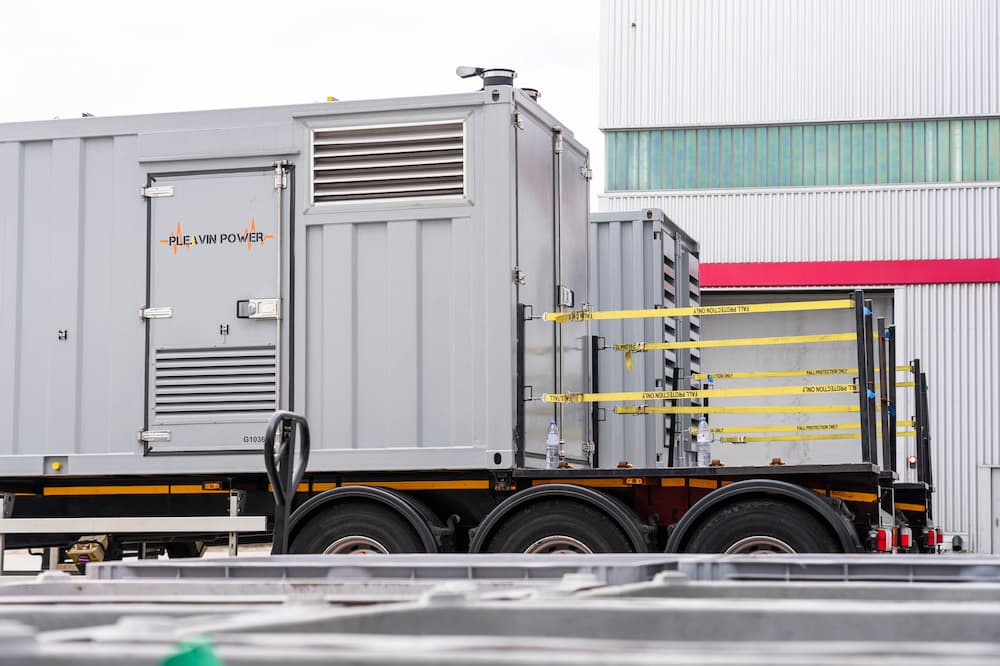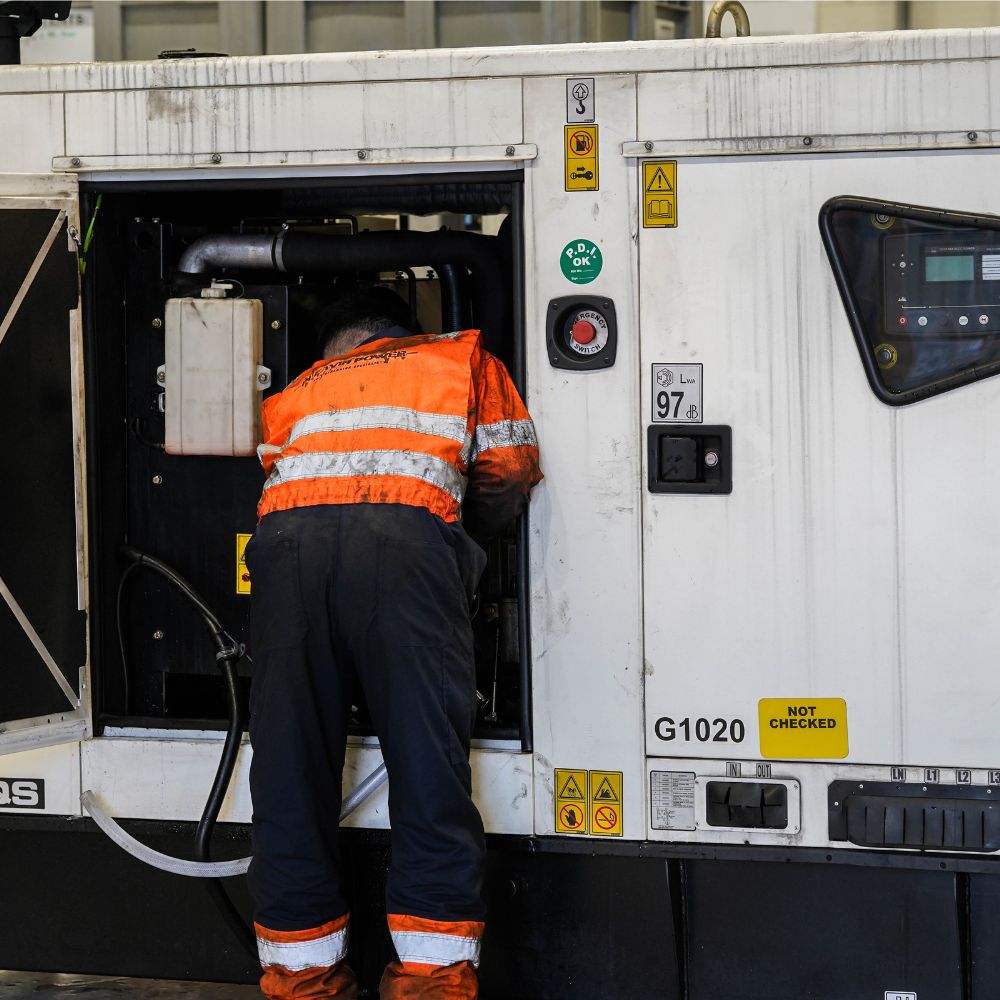Power outages can be inconvenient for some businesses and industries. For others, they can be catastrophic, damaging products and equipment, causing major downtime and potentially costing tens of thousands in lost revenue.
One industry that is particularly vulnerable to power outage risks is food retail. Supermarkets and their supply warehouses need to ensure they have 24/7 retail power continuity, especially when it comes to protecting cold storage.
Why Cold Storage Needs Reliable Backup Power
Supermarkets all over the world depend heavily on refrigeration. It’s essential for stock preservation and food safety, as well as to comply with industry regulations.
This includes Food Standards Agency guidance for chilling food, which as a legal requirement must be kept at temperatures of 8˚C or below (although best practice is 5˚C or below).
All of this requires continuous access to electricity, to power the hundreds if not thousands of fridge and freezer units used by the typical supermarket operation.
Even just a short outage can result in temperatures rising above safe levels in cold storage rooms and display fridges. This can mean that stock perishes, or is unsafe to sell to the general public. Businesses stand to lose thousands in spoiled stock, even if the power cut only lasts a few hours.
This is why nearly all supermarkets have a cold storage emergency power system in place, usually in the form of a generator.

Generator Sizing For Supermarket Refrigeration
Before installing supermarket backup generators, it’s crucial to have an on-site assessment carried out by an experienced professional. This step ensures that the correct size generator is chosen.
It may sound as simple as buying or hiring a generator that matches the load demand of the facility. However, there are actually more complicated factors to consider. For example:
- Accounting for all core systems – This includes equipment beyond walk-in freezers and refrigerated display cabinets, such as HVAC systems, lighting, safety and security systems
- Starting currents – Refrigeration compressors tend to require a higher startup current (inrush current), so generators must be sized with some headroom to accommodate this.
- Redundancy planning – It might be a sensible idea to oversize slightly, to build in a margin so that there is always a small amount of extra capacity beyond the expected load. However, it’s important not to go too far, or you could end up with a generator that isn’t cost-effective to run
Fuel Autonomy And Runtime Calculations
Runtime is crucial when planning a backup power solution for a food retail environment. In the event of an extended outage (such as can happen in a storm or grid failure), the generator needs to keep running until the mains power is restored. Otherwise, you’re left with the same issues with spoiled stock and expensive costs.
When your technician comes to carry out an on-site assessment, they can make calculations on runtime as well as fuel autonomy. This gives you a figure for how long refrigeration can be maintained. Fuel storage and strategies for managing fuel use are also part of this, whether you decide to install an on-site bulk tank or enter into a refuelling contract instead.

Planning For Retail Power Continuity
Installing a generator is only the first step in ensuring retail power continuity, even in the most unlikely or extreme of scenarios. To properly prepare, other actions should ideally be taken, such as:
- Comprehensive risk assessments – to evaluate outage risks and identify critical load priorities.
- Exploring permanent vs. temporary solutions – a large supermarket or storage warehouse may find it the most cost-effective to install standby generators permanently, while smaller shops may rely on fast-response food retail generator hire.
- Testing and maintenance – a programme of regular testing, proactive maintenance and servicing ensures reliability during emergencies.
- Integration with uninterruptible power systems (UPS) – as generators can take a short while to start, a battery-powered UPS can bridge the gap to ensure no disruption to normal operations. This can be especially useful for tills, servers and IT infrastructure within supermarkets and similar retail businesses.
Seasonal Demand And Temporary Generator Hire
Supermarkets tend to run on seasonal schedules, with Christmas, Easter and the summer months the peak seasons. During these times, the demand for refrigeration, restocking and stock storage can increase significantly.
This is why businesses in this sector may want to consider scalable, flexible solutions to help them cope with these peak periods. For example, hiring additional generators can help to meet a spike in demand as well as providing support for the servicing of permanent units.
Ultimately, each supermarket or retail group will need to seek expert advice in order to develop a bespoke backup power solution that meets its specific needs.















